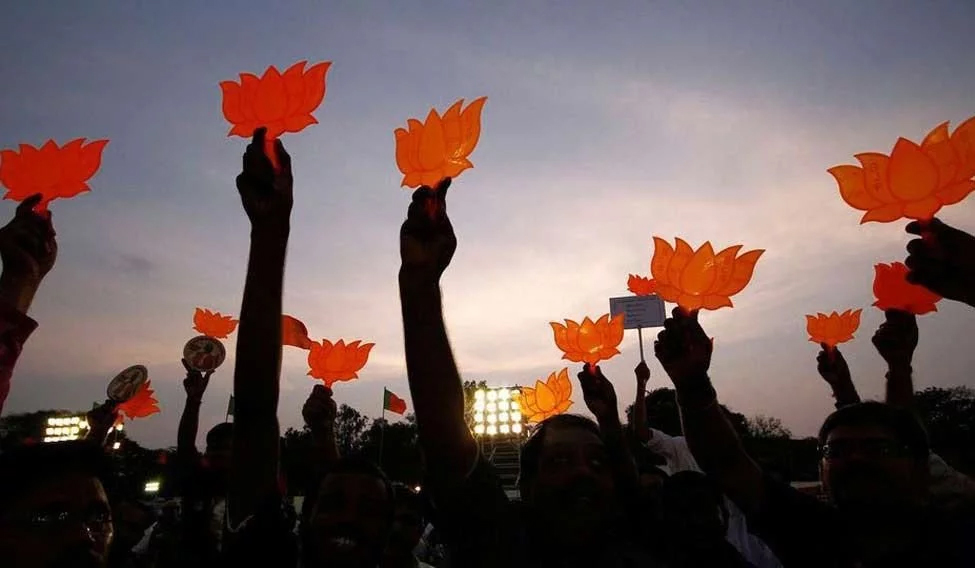Santosh Kumar Mohapatra
The Narendra Modi-led NDA has received a massive mandate just as predicted by exit polls. But while the Modi juggernaut crushed opponents nationwide, it was halted by Naveen’s leadership again despite his best efforts. Winning elections five times consecutively is no mean feat in politics. Fact is, it was only split voting — voting BJP for Lok Sabha and BJD for the Assembly — which led to the defeat of BJD candidates in the Lok Sabha.
Electoral success is more about diverting voters’ attention and is not an indication of performance. The massive mandate for NDA can be attributed to many factors. The first is that Modi faced weakest-ever opposition — divided and purposeless. They could not form coalitions even when they were getting obliterated. People rarely understand intricacies of economics. The Opposition failed miserably to campaign on major economic problems.
Most Indian voters want freedom from dynastic rule and communal rightist forces. In a democracy, candidates must be elected for their ability and honesty, and not just for being adherents to party ideology. But the media and the followers of BJP converted the electoral battle into a fight between Modi and Rahul. Most voters, especially youth, preferred Modi over Rahul owing to the tremendous rhetorical ability of the former.
Religion and emotion are tremendous weaknesses of Indian voters. Modi knew that economic development would not ensure him victory and so he focused on appealing to emotion. Modi depicted himself as the ‘chaiwala’ or ‘chowkidar’, which helped him get votes from the poor. But it must be noted that his party never given ticket to such persons.
The massive mandate he has received is immaterial if Modi pursues a pro-corporate agenda, trades in fake news and treats minorities as second-class citizens. This victory is a threat to multiparty democracy
Nationalism is about unity and integrity of the motherland, but Modi redefined it as Pak-bashing. He tactfully exploited the terror attack in Pulwama, India’s airstrike at Balakot, the capture of Wing Commander Abhinandan Varthaman and his eventual release to his electoral advantages. An increasing focus on Pakistan and other sensitive issues in the media distracted people from Modi’s failures, especially on the economic front and projected him as protector of India. This encouraged the youth to cast votes in favour of Modi as a nationalist hero. In reality, such activities are normal. In the past, never has any government exploited such issues for political gain, as Modi has done unabashedly.
Hindu religious groups connected closely with the BJP sprung into action this election and sent volunteers across India to knock on the doors and target voters. The RSS, the ideological mentor of the BJP, Swadeshi Jagaran Manch, economic wing of RSS, the Bharatiya Mazdoor Sangh (BMS), trade union wing of BJP, Akhila Bharatiya Vidyarthi Parishad, a student wing of BJP, followers of Ramdev worked tirelessly to bring Modi back to power. They were made to believe Modi’s personalisation of power as a good thing for the nation.
Religious sentiments of many were vulgarised such that even a criminal clad in saffron evoked more respect and electoral support from people that honest, simple, efficient people dressed otherwise. Hatred was created against Muslim communities to get votes of the majority Hindus. What is reprehensible is that Modi journeyed to shrines in full view of cameras, telecast live to lakhs and crores of Hindu households to project himself as religious person and derive electoral dividend.
The Election Commission has been overtly partisan and afraid to censure Prime Minister Modi. There are two different model codes of conduct — one for top BJP leaders, and the other for remaining politicians. What worries is that in most regulatory bodies and important institutions, BJP supporters were appointed to indirectly help Modi retain power. Those who did not were shown the door.
The very purpose of Modi’s propaganda revolved around the theory that his predecessors, especially the Congress, were worse than his regime and that he had no substitute. The independence of the media was curbed first, either by allurement or veiled threats. For the first time since independence, the Opposition, especially the Congress, was targeted by the media instead of the ruling dispensation.
Performance of the present government was not discussed. But failures of the past government were. An impression was created among voters that nothing was done over the past 60 years and that a lot has been achieved during Modi’s regime. Even the failures of Modi were masqueraded as success stories, and were presented before people through paid media frequently.
Hatred was created against those critical of government policies. Dissent and criticism were suppressed and treated as treason. So many intellectuals did not give independent opinion. In each speech, Modi told blatant lies, made false claims and gave wrong facts. But when the media carried these, correct views were not being carried to people by the media and as a result many people could not know his failure. Corporate funding to BJP and its election campaign, both openly and surreptitiously, tilted the voting pattern in favour of the BJP. What is depressing now is the decline of the political Left as a force that helped the rise of BJP.
If politics meant retaining or snatching power by hook or by crook, then Modi and the BJP are right. If it means to do something for the people and the nation, then Modi and the BJP are completely wrong. The massive mandate he has received is immaterial if Modi pursues a pro-corporate agenda, trades in fake news and treats minorities as second-class citizens. This victory is a threat to multiparty democracy; it can lead to a more pro-corporate agenda and decimation of the public sector and the poor. India faces more dark politics ahead.
The writer is an Odisha-based economist. e-Mail: skmohapatra67@gmail.com.
